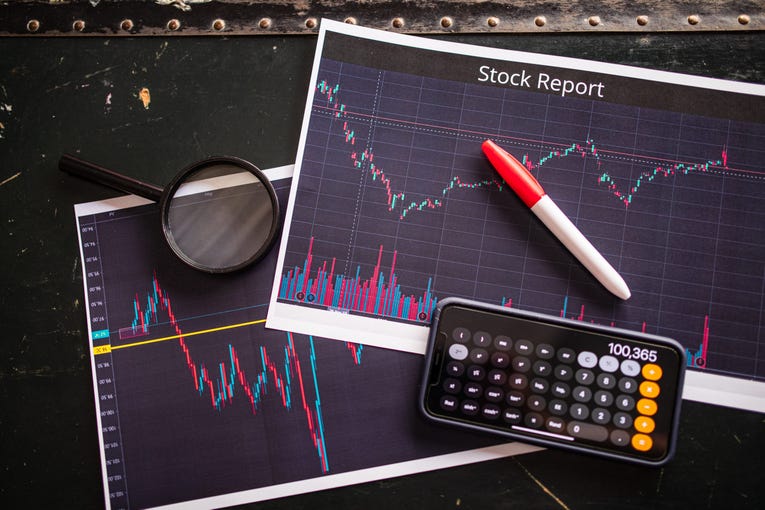What Exactly Are These Active Stocks?
Feb 16, 2024 By Triston Martin
This refers to equities with the most significant stock market trading volume at any given time. During a single trading day, the most active equities, sometimes known as "volume leaders," are more frequently cited. Investors are sometimes fueled to purchase and sell particular companies by corporate news or economic statistics. A list of the most actively traded equities over a week, month, quarter, or year may also interest investors. It is common for the most often sold items to be on the most active listings over a given period.
How To Identify And Analyze Active Stocks
Stocks with a lot of outstanding shares tend to be more active. Because they are traded regularly and widely available in huge quantities, they are often considered highly liquid. Stocks with a high activity level are more likely to be sold, regardless of how much their price changes.
As a rule of thumb, active stocks appear on various stock indexes, such as the S&P 500. They're a significant player in the American economy, ranking high among the country's largest employers. There has been a lot of activity from companies like Apple, Microsoft, AT&T, Amazon, and Walmart, all of which experience a lot of daily trade.
Finding an Active Stock: A Step-by-Step Guide

No standard exists for defining a stock's size to be deemed "active." If a stock trades more than a million shares daily, it is considered "active." Every day, nearly five million shares of over 250 different stocks are sold in the United States alone. Despite the fact that the word is frequently used to refer to businesses that have a high level of activity, the majority of media sources are aware of the distinction between dynamic stocks based on sales and active stocks based on cost. There is a daily active stock count, the amount traded, and the day's profit or loss displayed by exchanges and traders.
Stock Market Basics You Should Know

What do you think of yourself? What's the point of starting your day with 50 Twitter shares and selling them off by lunchtime? It would help if you were not reading this. An average Joe who is just attempting to put some money into the market or take greater control of their finances may find this helpful piece. These ten concepts, techniques, and subjects are a fantastic starting point for learning about the stock market.
1) Buy Low, Sell High
It's a rare arena when getting a bargain looks terrible, but it is one of the few places where it does. Despite the recent reduction in oil prices, few people are moaning about reduced gas prices at the pump, yet a slight dip in stock prices is perceived as the end of a bull market. The bull market will end, but over extended periods, equities have shown valuable investments that tend to rise.
2) There Is No Such Thing As a For Certain
Regarding oil prices, Alibaba is a world-beating juggernaut that can't be stopped; ESPN is impervious to the shifting sands of the cable market, and its capacity to make money for Disney is unquestionable. These are just a few instances of stories that were previously considered gospel but have since been debunked.
3) Acquaint Yourself With Filings
The rest of us must undertake our due diligence if we want to identify good firms, even if some investors think they have a sixth instinct. The monthly SEC filings that public corporations are expected to submit, including everything from corporate finances to potential conflicts and risk concerns, are the best place to start. More information may be found in the yearly 10-K, which covers everything from quarterly and annual financial data to descriptions of business areas and management commentary on development potential and expenses.
4) Long-Term Thinking
Short-term trading isn't just bad for investors because of taxes. Trading stocks based on a company's quarterly profits or an economic indicator is a game for automated trading systems, not for the ordinary Joe. Better possibilities arise when a stock or industry languishes in the market despite sustained economic outcomes that will deliver a long-term stream of profits. For a long time, transportation equities like airlines and railways have been out of favor, only to rebound when the economy and sector fundamentals align.
Active Stock
New York Stock Exchange and Nasdaq provide daily lists of the most popular equities traded on their exchanges. In most cases, this is limited to the top ten or twenty most frequently traded equities on any given day. The S&P 500 and other vital indexes are included in these daily lists, which are pretty consistent.
Lists constantly evolve due to market dynamics and are not limited to equities. ETFs, bonds, currencies, and futures all figure on the most popular lists. Traders of all expertise levels find them to be enticing tools.

What You Should Know Before Choosing Actively Managed Funds or Passive Investing
A portfolio manager and perhaps other "active participant" must take an active role in active investing. Less active trading is characteristic of passive investment, which often entails purchasing index funds and perhaps other types of mutual funds. Active and passive investing has advantages, but passive investing has attracted more capital. Passive investments have often generated higher returns than their active counterparts. For the first time in quite some time, active investing has gained traction, especially in times of market turmoil.
Jan 01, 2024 Triston Martin

The Best Online Brokers For Trading Commodities And Futures
It is possible to trade futures and commodities through several different online brokers. T.D. Ameritrade, E*TRADE, Interactive Brokers, and TradeStation are just a few examples of the industry's finest brokers. Futures traders can take advantage of various resources, including advanced charting, research, and analysis tools, all provided by the brokers listed here. In addition to providing easy access to many futures contracts and commodity markets, they often charge little commissions and costs.
Oct 20, 2023 Triston Martin

Understanding Reverse Mortgage Refinancing
This article explores the concept of refinancing a reverse mortgage in simple terms, explaining the process, benefits, and considerations
Oct 17, 2023 Susan Kelly

Cabela's CLUB Mastercard
Apart from getting points for Cabela's as well as Bass Pro Shops purchases, cardholders enjoy special benefits and discounts.
Nov 07, 2023 Triston Martin

When You Finally Retire, How Much Money Will You Have To Pay In Taxes?
A decreased tax burden is a goal shared by everybody. One possible solution is to move to a tax-free state. There are currently no state income taxes in Alaska, Florida, Nevada, North Dakota, Chattanooga, Texas, or Wyoming. Investments but capital gains are subject to taxation in the state of Washington, except for high earnings. As of January 1, 2021, Tennessee no longer taxes interest but investment income, thanks to the elimination of the Hall income tax. For its part, New Hampshire levies interest and income from investments but plans to eliminate the surcharge by 2023. By the year 2027, there will be nine states that do not charge an individual income tax.
Nov 25, 2023 Triston Martin

What Exactly Are These Active Stocks?
Active stocks are equities with a high volume of trading on a particular exchange. They go through a lot of buying and selling, and they typically have a significant number of shares that are still outstanding. Because active stocks are actively traded, they usually have bid-ask spreads close to zero due to the additional liquidity they provide.
Feb 16, 2024 Triston Martin